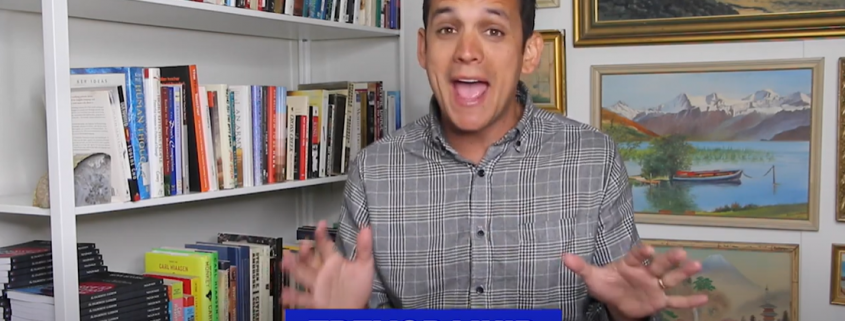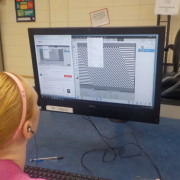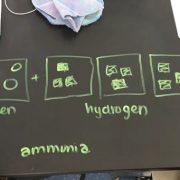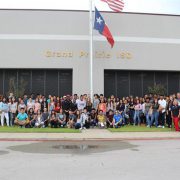Teacher Trevor Muir on Why Soft Skills Are the Most Important Career Skills of All
High school teacher Trevor Muir believes that soft skills that are developed in project-based learning could be even more vital to success in technology-intensive fields than hard skills like chemistry or mathematics.
Trevor explained why in a recent video he shared with the Student Research Foundation.
Let’s hear some edited excerpts of what he had to say . . .
“As an educator, something I so firmly believe in is that soft skills are not actually soft at all. In the 21st century, the number one reason people are fired from their jobs is not because they’re not proficient at factoring polynomials or understanding exactly how a semicolon works, it’s that they don’t know how to collaborate or critically think or exude confidence or think outside the box. Academic content and semicolons are still important, but more so are these essential skills. And that’s why when I was recently asked by Teachers Connect in collaboration that was sponsored by the not-for-profit student Research Foundation to talk about some of this as it applies to high school students.”
“If the ultimate purpose of school is to prepare students for a successful life, we should be very practical when we’re thinking about what school looks like. I’d say the majority of high school students I’ve had in my classrooms have spent very little time considering their career pathways or what they want their future to look like, especially my freshmen and sophomores. I don’t think students have to completely have it all figured out about where they want to work after their education is complete, but I do believe it’s important that they begin that exploration as soon as they can. This can help give them direction and motivation in the work that they do in the classroom and understand why it’s important to develop these essential skills.”
“You want to be an engineer? Well then, you’re going to have to learn how to work in groups to complete projects. That’s part of the work of an engineer. You want to be a doctor? Yes, you’re going to have to know complex scientific information, but you’re also going to need strong bedside manner and excellent people skills. When students have a sense of direction in their careers, they can begin then to learn what skills are necessary to develop so that they can thrive in that career someday.”
“Additionally, teachers can design lessons and activities that allow students to develop these skills . . . let’s be honest, the modern education system hasn’t always done the best job to prepare students to be strong collaborators or communicators or researchers or critical thinkers. Standardized testing and learning standards have created really great test-takers . . . I’ve got nothing against preparing students to be content proficient, but it’s a combination with other skills that develops truly successful students.”
What Kinds of Experiences Teach the Soft Skills Trevor Is Describing?
- Collaboration – Shared projects that teach students to work with each other
- Communication skills – Projects that require students to present results to their classes upon completion of projects
- Real-world experiences – Internships that enrich learning with employers
- Open classroom doors – Classroom presentations from working professionals who explain real-world skills and experiences
- Leadership development – Projects in which certain students take responsibility for the success of their teams and groups
- Presentation skills – Students communicate the result of their work through visual and other presentations
- Outreach – Project results and findings are communicated to other schools and organizations that are not part of the student’s school community
Trevor Muir Summarizes . . .
“I have to design learning experiences that make my students career and life-ready.”
We could not agree more. And we are pleased to report that thoughtful educators like Trevor are bringing a broader perspective to what it means to educate young students today.
We Invite You to Explore Your Students’ College & Career Options with Us . . .
Students who participate in the National Career & College Pathway Study will gain new insights about making educational decisions that align with their interests, passions, and aptitudes. Participants will receive information on college and career opportunities that match their interests.
Related Posts
Teachers’ Commitment to their Students Was their Strongest Motivation During the Pandemic
Turning Covid into Teachable Moments
Tips for Teachers Seeking New Jobs in a Post-Pandemic World
Resources for Teachers Returning to the Classroom Now
Resources











Leave a Reply
Want to join the discussion?Feel free to contribute!